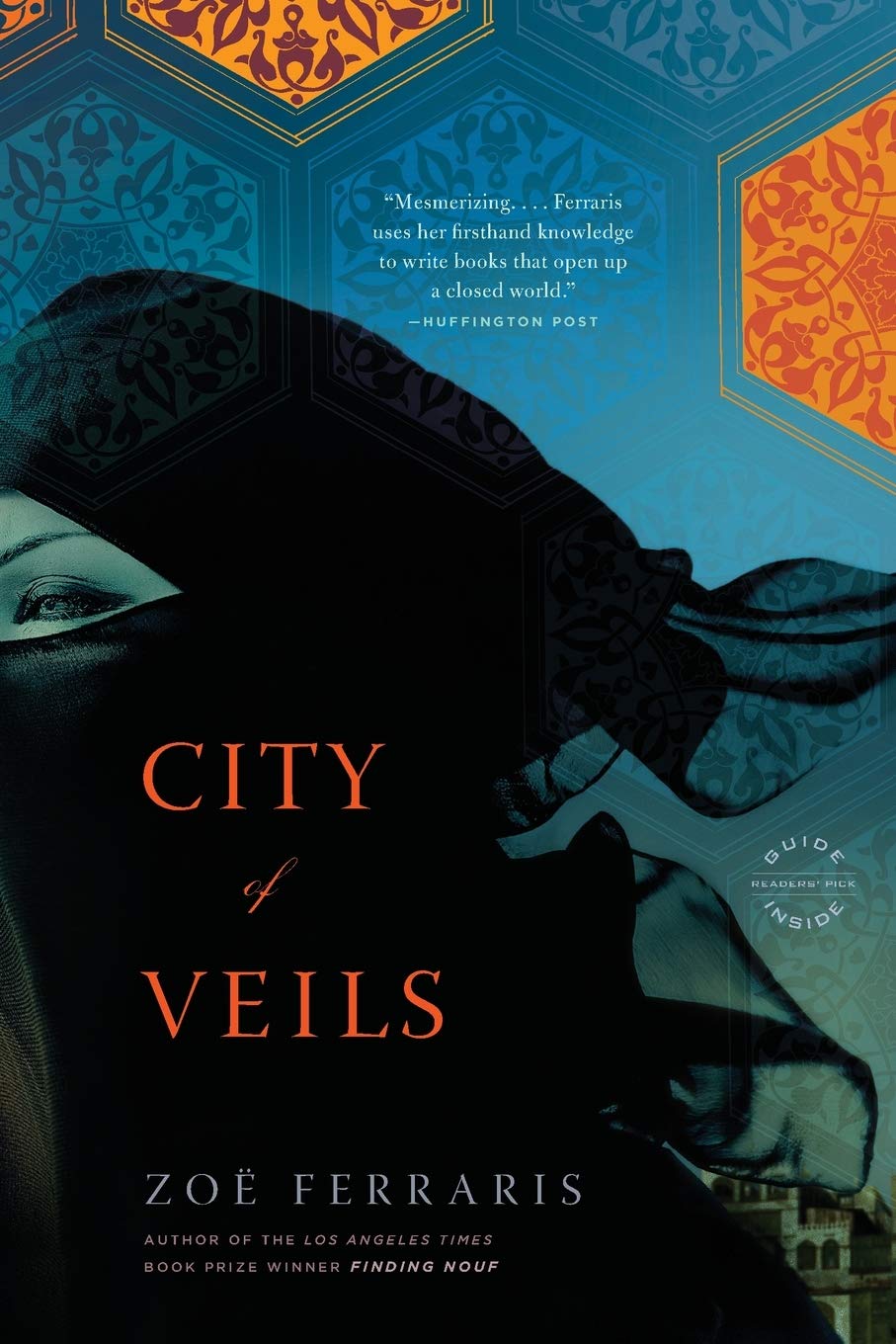
Armchair travel around the world!
Start your reading adventures with our FREE Reading Atlas.

- Around the World in 14 Books
- 7 Thrilling Book Series
- 6 Audiobooks That Are Like Theater For Your Ears



This crime novel (417 pages) was published in April of 2016 by Back Bay Books. The book takes you to Jeddah, Saudi Arabia. Melissa read City Of Veils and loved it; it wouldn't be on our site if she didn't recommend it.
Bookshop.org is an online bookstore with a mission to financially support independent bookstores and give back to the book community.

In the cosmopolitan beachside city of Jeddah, a gruesome murder brings together an unlikely investigative duo: a Bedouin desert guide named Nayir and Katya, a young woman who works in the lab of the coroner’s office.
If you know anything about Saudi Arabia and the societal restrictions placed on women, this premise might raise your eyebrows. Nayir is a man! In fact, a very devout Muslim man. And he’s teamed up with Katya, a woman to whom he’s not related. But they’re friends! Sort of. And colleagues. Kind of. And she works outside the house! In the coroner’s office! It is all complicated and unusual.
This relationship between them — often prickly, sometimes romantic — is a good peek inside the contradictions of life in Saudi Arabia. The two genuinely respect each other, yet they’re both troubled by the personal compromises required to be… whatever it is they are to each other.
They’re the heart of the narrative, with their personal drama playing out in the periphery of a crime story that also tackles the role of women in Saudi society.
When the book opens, we’re thrust into two mysteries. First, an American woman reluctantly returns to her husband in Saudi Arabia after a trip to the States. It’s clear their relationship is strained, although we don’t know why.
Meanwhile, a woman’s mutilated body washes up on the beach, but there’s not a lot of police momentum to identify who or her killer. Women disappear or are victims of violence all the time; she’s probably just an immigrant housemade killer by her employer.
But Katya doesn’t want to let it go. She finds support in surprising places in the police department — and she recruits her pal Nayir to help with some off-the-books poking around. They learn the victim was a controversial documentary filmmaker, an agitator particularly interested in prostitution and violence against women.
Eventually, the threads of the two mysteries crash together in satisfying, unsettling ways.
In addition to a solid mystery, this novel offers a tantalizing glimpse inside several male-female relationships and how they function (or don’t) within the rules of Saudi society. It also has a powerful sense of Jeddah. It’s hot, so brutally hot, and from the start, there’s a taut atmosphere of dread, a heaviness in the interactions between the characters, partially from the heat and partially from the emotional overhead of rules that govern everything they do.
The fabric was worn around the cuffed wrists, which had no snaps or buttons and looked a little shrunken from washing… The wrists were so worn compared to the moderate wear and tear on the elbows and collar that she might have put the cloak on every day. For what — six months? Why not once a week for six years? No, Katya thought, in six years, the cloak would have faded much more than it had. She had owned plenty of cheap cloaks in her time, and her experience was telling her that this cloak had been worn frequently for under a year. Any longer than that and the color would be faded, the seams coming apart. Who wears a cloak every day? Rich women went out whenever they liked, but their worn cloaks were quickly replaced by new ones. A working woman went out, someone like Katya, but not someone with a professional job where a cloak like this would be an embarrassment. A factory worker? A grocery store employee, someone hidden in the back room, stocking the shelves only when the store was closed? A single mother with no family might have to go out every day to walk her children to school or do the shopping. For that matter, a married woman would go out, if her husband was too busy to take her. But an abused housemaid? She would probably not be allowed to leave the house. She would be isolated, locked in her room at night, or even during the day when she wasn’t needed. — Zoë Ferraris
Wanna help us spread the word? If you like this page, please share with your friends.
Strong Sense of Place is a website and podcast dedicated to literary travel and books we love. Reading good books increases empathy. Empathy is good for all of us and the amazing world we inhabit.
Strong Sense of Place is a listener-supported podcast. If you like the work we do, you can help make it happen by joining our Patreon! That'll unlock bonus content for you, too — including Mel's secret book reviews and Dave's behind-the-scenes notes for the latest Two Truths and a Lie.
Join our Substack to get our FREE newsletter with podcast updates and behind-the-scenes info — and join in fun chats about books and travel with other lovely readers.

We'll share enough detail to help you decide if a book is for you, but we'll never ruin plot twists or give away the ending.
Content on this site is ©2026 by Smudge Publishing, unless otherwise noted. Peace be with you, person who reads the small type.